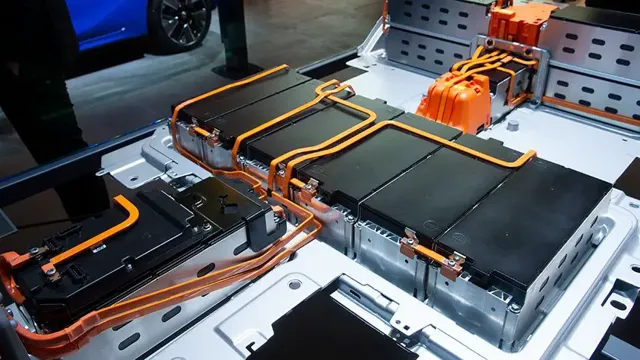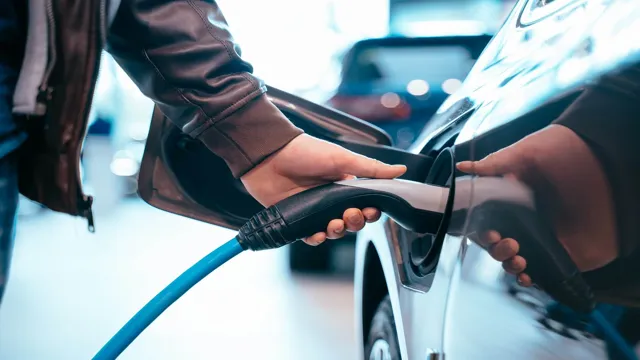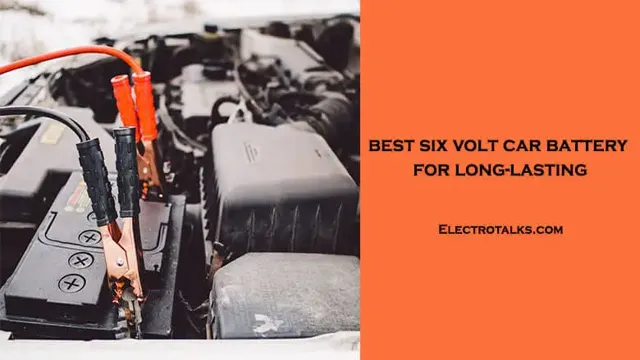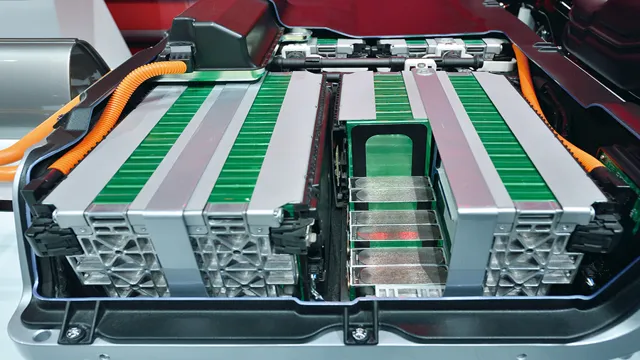Powering the Future: Top Companies Manufacturing Electric Car Batteries in India
India is among the world’s fastest-growing economies and is on a mission to become a leader in green energy. As electric vehicles become increasingly popular worldwide, the Indian government has set its sights on the electric automobile market and has taken strides to encourage the adoption of EVs. One of the key components of an electric vehicle is the battery, which is responsible for storing and supplying power to the electric motor.
The manufacturing of electric car batteries is a crucial aspect of the EV industry, and India has been making strides in this area. In recent years, the Indian government has put forth a concerted effort to establish a robust ecosystem for EVs, with a primary focus on manufacturing lithium-ion batteries. India currently imports over 80% of the lithium-ion batteries it uses in electric vehicles.
The government’s National Mission for Transformative Mobility and Battery Storage aims to promote domestic battery manufacturing to reduce imports and create job opportunities. The goal of the program is to set up at least 50 GWh of battery manufacturing capacity in India by 202 The country has already made significant progress towards achieving this goal.
In 2017, India’s first lithium-ion battery pack manufacturing unit was inaugurated in Gujarat. This was followed by announcements from major automakers such as Mahindra and Tata Motors, who have invested in the development of lithium-ion battery manufacturing plants. These initiatives will not only help to reduce the cost of EV components but also enhance India’s energy security.
With the increasing demand for electric vehicles globally, India’s efforts to promote EV adoption and domestic battery manufacturing have placed the country in a position to become a global leader in the EV industry. The manufacturing of electric car batteries in India is poised to create new opportunities for growth and development, and the country has the potential to become a key player in the Power sector.
Introduction to India’s electric car market
India’s electric car market is growing rapidly, with more and more companies investing in manufacturing electric vehicles and batteries. One company leading the way in this market is Exide Industries, which recently partnered with Swiss energy storage solutions provider Leclanché to produce lithium-ion batteries for electric vehicles. Tata Chemicals is also making headway in this field, with plans to produce sodium-ion batteries for electric cars by 202
Another notable player is Bharat Forge, which has partnered with the UK’s Tevva Motors to produce electric trucks. While many companies are still in the early stages of development, the increased interest in electric vehicles and batteries in India is a positive sign for the future of sustainable transportation. As the market continues to grow, we can expect to see even more companies joining the efforts to create a cleaner, greener transportation industry.
Overview of India’s electric car battery industry
Electric car battery industry in India India’s electric car market is rapidly growing, and the demand for reliable and affordable electric cars is driving the development of the country’s battery industry. The Indian electric vehicle market has witnessed significant growth in recent years, driven by government initiatives and an increase in demand for clean and sustainable transportation. The government has introduced a host of policies and initiatives such as FAME (Faster Adoption and Manufacturing of Hybrid & Electric Vehicles) and the National Electric Mobility Mission Plan to promote the adoption of electric vehicles and the development of EV infrastructure.
These measures have stimulated an increase in both domestic production and imports of lithium-ion batteries, which are the most common type of batteries used in electric vehicles. As the industry grows, Indian companies are investing in research and development to improve their battery technology, with the aim of reducing costs and increasing production efficiency. Overall, the Indian electric car battery industry is poised for significant growth in the coming years.

Major players in India’s electric car battery market
India’s electric car market is exhibiting immense growth as people shift towards electric vehicles to reduce pollution and fossil fuel usage. The government is incentivizing electric car manufacturers to produce more electric cars to keep up with this trend. The battery market for electric vehicles is also experiencing significant growth, with major players like Tata Chemicals, Exide Industries, and Amara Raja Batteries leading the market.
Tata Chemicals has developed a lithium-ion battery cell manufacturing plant, and it is working towards expanding its production capabilities to become the largest manufacturer in India. Similarly, Exide Industries has collaborated with Switzerland-based firm Leclanché to produce lithium-ion batteries in India. Amara Raja Batteries has also announced a collaboration with Gridtential Energy to develop advanced version lead-acid batteries that can be used in electric vehicles.
These companies are essential players in India’s electric car battery market and will continue to contribute to its growth in the coming years.
Top companies manufacturing electric car batteries in India
“Are you searching for the top companies manufacturing electric car batteries in India? Look no further! India is slowly but surely moving towards electric vehicles, and companies such as Exide Industries, Amara Raja Batteries, and Tata Chemicals are some of the key players in this market. Exide Industries has a range of batteries suitable for electric cars, with a capacity ranging from 14kWh to 40kWh. Amara Raja Batteries has also entered the market with its lithium-ion batteries, which claim to charge faster and last longer.
Additionally, Tata Chemicals recently ventured into the lithium-ion battery space and is set to produce batteries for commercial vehicles. These companies are investing in research and development to improve battery technology and cater to the increasing demand for electric cars in India. With the government’s incentives and initiatives to promote clean energy, the electric car battery market is set to grow in India, and these companies will likely play a vital role in shaping the industry.
“
Battery manufacturers for popular electric car models
India’s electric vehicle market is rapidly growing, and with it comes the need for reliable battery manufacturers. Some of the top companies manufacturing electric car batteries in India include Tata Chemicals, Exide Industries, and Amara Raja Batteries. These companies have worked tirelessly to develop and produce high-quality batteries for popular electric car models in India, such as the Tata Nexon EV, MG ZS EV, and Hyundai Kona Electric.
With the government’s push for sustainable transportation, these companies are expected to continue investing in research and development to improve the performance and durability of electric car batteries. As more consumers switch to electric cars, it’s encouraging to see these companies stepping up to meet the demand and contribute towards a greener future for India.
Comparing the features and prices of different electric car batteries in India
Electric car batteries in India When it comes to electric cars, the battery is the heart of the entire system. In India, there are several top companies manufacturing electric car batteries that offer exceptional performance at reasonable prices. Topping the list is Tata Chemicals, which produces high-quality lithium-ion batteries for electric vehicles.
Their batteries are known for their long life, durability, and high energy density. Another leading player in the market is Exide Industries, which manufactures both lithium-ion and lead-acid batteries for electric cars. Their lithium-ion batteries are particularly popular among EV owners due to their fast charging capability and longer lifespan.
Apart from these, companies like Amara Raja Batteries, HBL Power Systems, and Coslight India also offer competitive solutions in the electric car battery space. These companies provide a wide range of batteries with varying capacities and prices, making it easier for consumers to choose the one that suits their needs and budget. With more and more electric cars hitting the Indian roads, we can expect the electric car battery market to grow exponentially in the coming years.
Sustainability and social responsibility efforts of India’s electric car battery manufacturers
India’s electric car battery manufacturers are doing their part in promoting sustainability and social responsibility through their manufacturing practices. Among the top companies in this field are Tata Chemicals, Exide Industries, and Amara Raja Batteries. Tata Chemicals has developed a process for extracting lithium from discarded batteries, which allows for the reuse of materials and reduces waste.
Exide Industries has implemented energy-efficient technologies in their manufacturing plants and reduced their carbon footprint. Amara Raja Batteries has focused on promoting education and healthcare in the communities where they operate, making them more socially responsible. These companies are leading the way in sustainable practices and social responsibility, showing that electric cars can be both environmentally friendly and socially responsible.
By supporting these companies, consumers can help promote a cleaner and more responsible future for everyone.
Future of electric car batteries in India
There has been a surge of interest in electric cars in India, and it is no surprise that several companies have jumped into the fray to manufacture electric car batteries. One such company is Exide Industries, which already has a strong presence in the automotive battery market and has now entered the electric car battery space with its new range of lithium-ion batteries. Tata Chemicals, through its subsidiary Tata Chemicals Advanced Materials Ltd.
, has also started producing lithium-ion batteries for electric vehicles after establishing a joint venture with the US-based battery company C4V in 201 Another player in this segment is Amara Raja Batteries, which is collaborating with the Indian Space Research Organisation to develop lithium-ion batteries using technologies used in the Indian space program. As the demand for electric cars continues to grow, more companies are expected to enter the market, making it an exciting time for the electric car industry in India.
Trends in India’s electric car battery industry
India’s electric car battery industry is rapidly evolving and adapting new trends to keep up with global standards. The future of electric car batteries in India looks promising as the country moves towards becoming an all-electric vehicle society. One of the major trends in this industry is the focus on developing long-lasting and reliable batteries that can help electric vehicles travel longer distances per charge.
Additionally, there is a growing interest in developing batteries that are environmentally friendly and can be recycled easily. India is also exploring the use of alternative materials, such as lithium-sulfur, to improve the energy density of the batteries while reducing costs. As the electric vehicle market continues to grow, the battery industry in India will also continue to innovate and provide sustainable solutions for the future.
Regulatory and environmental factors that impact electric car battery manufacturing in India
As the world continues to shift towards more sustainable forms of energy, electric cars are becoming increasingly popular in India. However, the manufacturing of electric car batteries in India is not without its challenges. Regulatory and environmental factors can have a significant impact on the production process.
For instance, the Indian government has introduced stringent regulations to ensure that electric car batteries are manufactured using environmentally friendly methods. On the other hand, the production of these batteries requires the use of rare earth metals, which can have a negative impact on the environment if not properly managed. As a result, battery manufacturers in India are focusing on developing more sustainable and eco-friendly methods of manufacturing electric car batteries.
Despite these challenges, the future of electric car batteries in India looks bright. The government has introduced several incentives and subsidies to encourage the use of electric cars, which has led to a surge in demand for electric car batteries. battery Manufacturers are investing heavily in research and development to produce high-quality, long-lasting batteries that can power electric cars for longer distances.
With the right approach, India has the potential to become a leader in the production of electric car batteries, which could transform the automotive industry and usher in a new era of sustainable transportation.
Conclusion: The growth of India’s electric car battery industry
In conclusion, the race to produce eco-friendly and cost-effective electric vehicles has spurred a new market of electric car batteries manufacturing in India. With companies like Tata Chemicals, Reliance Industries, and Exide Industries taking the lead in this field, it is clear that India is not only committed to reducing its carbon footprint but is also poised to become a major player in the global electric vehicle market. As we charge towards a greener future, we can take comfort in knowing that the batteries powering our electric cars are made in India, a testament to the nation’s technological prowess and commitment to sustainability.
It’s time to rev up those electric engines and drive towards a brighter, cleaner future!”
FAQs
What are the top companies manufacturing electric car batteries in India?
Some of the major electric car battery manufacturers in India include Tata Chemicals Ltd., Exide Industries Ltd., and Amara Raja Batteries Ltd.
How is the demand for electric car batteries in India expected to grow in the future?
The demand for electric car batteries in India is projected to grow at a significant rate owing to the increasing adoption of electric vehicles, development of charging infrastructure, and favorable government initiatives.
What are the key challenges faced by electric car battery manufacturers in India?
Some of the major challenges faced by electric car battery manufacturers in India include high costs associated with manufacturing, technological advancements, and competition from foreign players.
What are the advantages of using electric car batteries manufactured in India?
The use of electric car batteries manufactured in India promotes the Make in India initiative, reduces dependence on foreign imports, and enhances the overall growth of the Indian economy.



